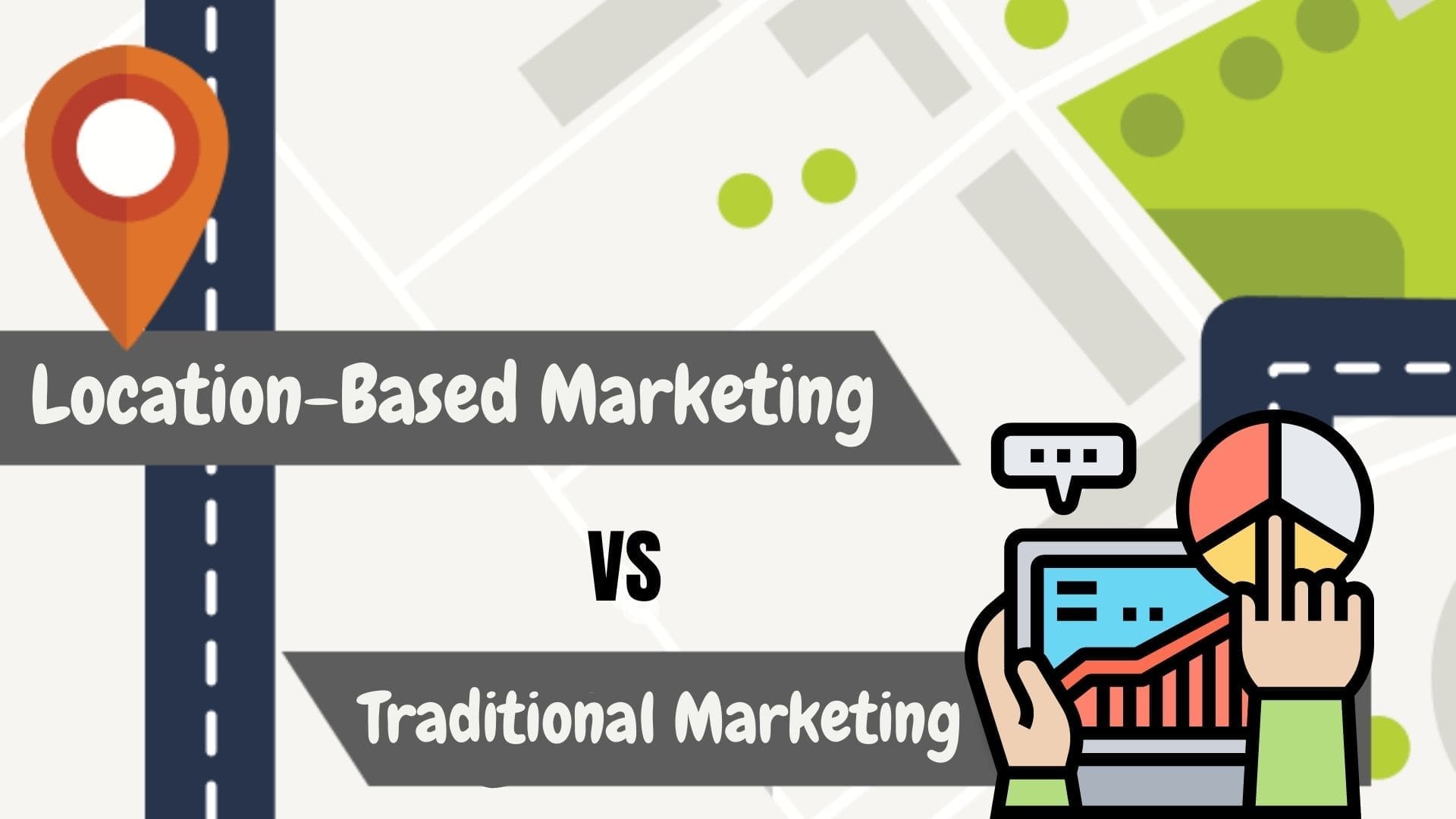
Marketing is crucial for small businesses to grow and succeed, both online and offline. It helps create brand awareness, attract new customers, and maintain a strong relationship with existing ones. Two popular marketing methods are location-based marketing and traditional marketing. This article will discuss the key differences between location-based marketing and traditional marketing, their benefits and limitations, and why small businesses should consider incorporating location-based marketing into their marketing strategy.
Location-based marketing is a marketing strategy that targets customers based on their geographic location. It uses a combination of GPS technology, mobile devices, and various targeting methods to deliver personalized marketing messages to users in specific areas.
Examples of location-based marketing techniques include:
To learn more about location-based marketing, you can read our blog post on connecting with your target audience through local SEO.
Traditional marketing refers to the conventional methods of promoting products and services. It includes a wide range of channels, such as print media, radio, television, and direct mail. Traditional marketing focuses on reaching a broad audience, often using mass-produced messages that may, or may not, resonate with individual consumers.
Examples of traditional marketing techniques include:
One of the main differences between location-based marketing and traditional marketing is the ability to target specific audiences based on their geographic location. Location-based marketing allows businesses to reach consumers who are more likely to be interested in their products or services, based on their proximity to the business. In contrast, traditional marketing methods target a broader audience, which may lead to less effective campaigns.
Location-based marketing uses technology and data to target customers in real-time, while traditional marketing relies on pre-planned campaigns with fixed messages. This allows location-based marketing to provide a more personalized and relevant experience to the consumers. On the other hand, traditional marketing involves delivering generic messages to a wide audience, which may not resonate with all consumers.
Location-based marketing can be more cost-effective than traditional marketing, particularly for small businesses. With location-based marketing, businesses can focus their advertising efforts on a specific geographic area, which reduces advertising costs and results in better return on investment (ROI). Traditional marketing methods, such as print ads and billboards, often require a larger budget and may generate lower ROI.
Location-based marketing campaigns tend to deliver higher engagement and conversion rates, as they target users who are more likely to be interested in the product or service being advertised. Traditional marketing campaigns, on the other hand, often have lower engagement and conversion rates, as they reach a broader audience that may not be interested in the brand or product.
Another significant difference between location-based marketing and traditional marketing is the level of audience engagement. Location-based marketing encourages users to interact with the brand, for example, through social media check-ins, app usage, and in-store promotions. In contrast, traditional marketing methods are more passive and do not foster direct engagement between the audience and the brand.
Location-based marketing offers several benefits to small businesses, including:
Our blog post on the Do’s and Don’ts of local business marketing shares examples of small businesses benefiting from location-based marketing strategies.
Despite its many benefits, location-based marketing is not without its challenges:
Understanding the differences between location-based marketing and traditional marketing can help small businesses make informed decisions about their marketing strategies. While traditional marketing methods still have their place, location-based marketing offers significant benefits for small businesses, such as better targeting, higher engagement, and improved ROI. Therefore, it is worth considering incorporating location-based marketing into your marketing strategy.
For help with implementing location-based marketing for your small business, check out our business listing builder and search engine optimization services.
Q: What is the main advantage of location-based marketing?
A: Location-based marketing allows small businesses to target their audience in specific locations, improving their chances of converting their marketing efforts into sales.
Q: Can location-based marketing work for all types of small businesses?
A: Yes, location-based marketing can be applied to all types of small businesses regardless of their niche or size.
Q: Is location-based marketing cost-effective for small businesses?
A: Yes, location-based marketing is cost-effective for small businesses as it can be done on a small budget using free or low-cost tools.
Q: How can small businesses track the effectiveness of their location-based marketing campaigns?
A: Small businesses can track the effectiveness of their location-based marketing campaigns using analytics tools that measure the success of their campaigns based on the number of visits or sales generated from their promotions.
Q: What is local presence management and why do I need it?
A: Local presence management involves managing your business’s online presence across various directories, social media platforms, and review sites. It is crucial for small businesses to maintain a strong online presence to attract and retain customers. Learn more about local presence management in our blog post.
You must be logged in to post a comment.
